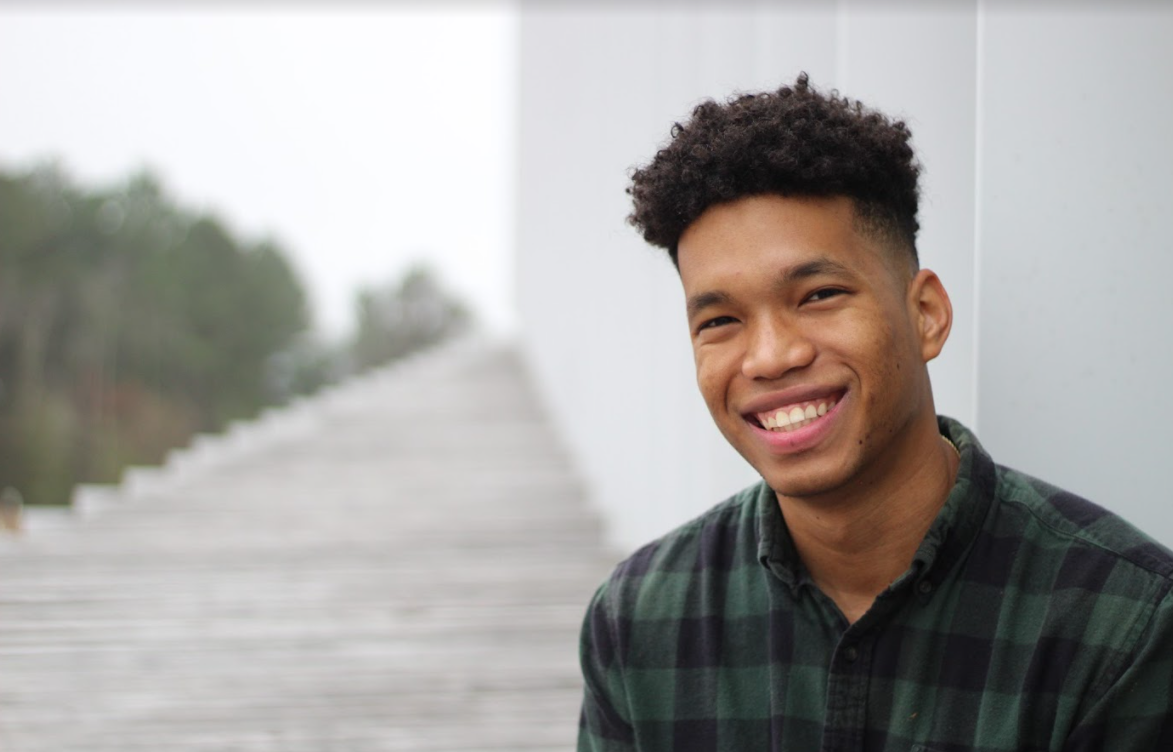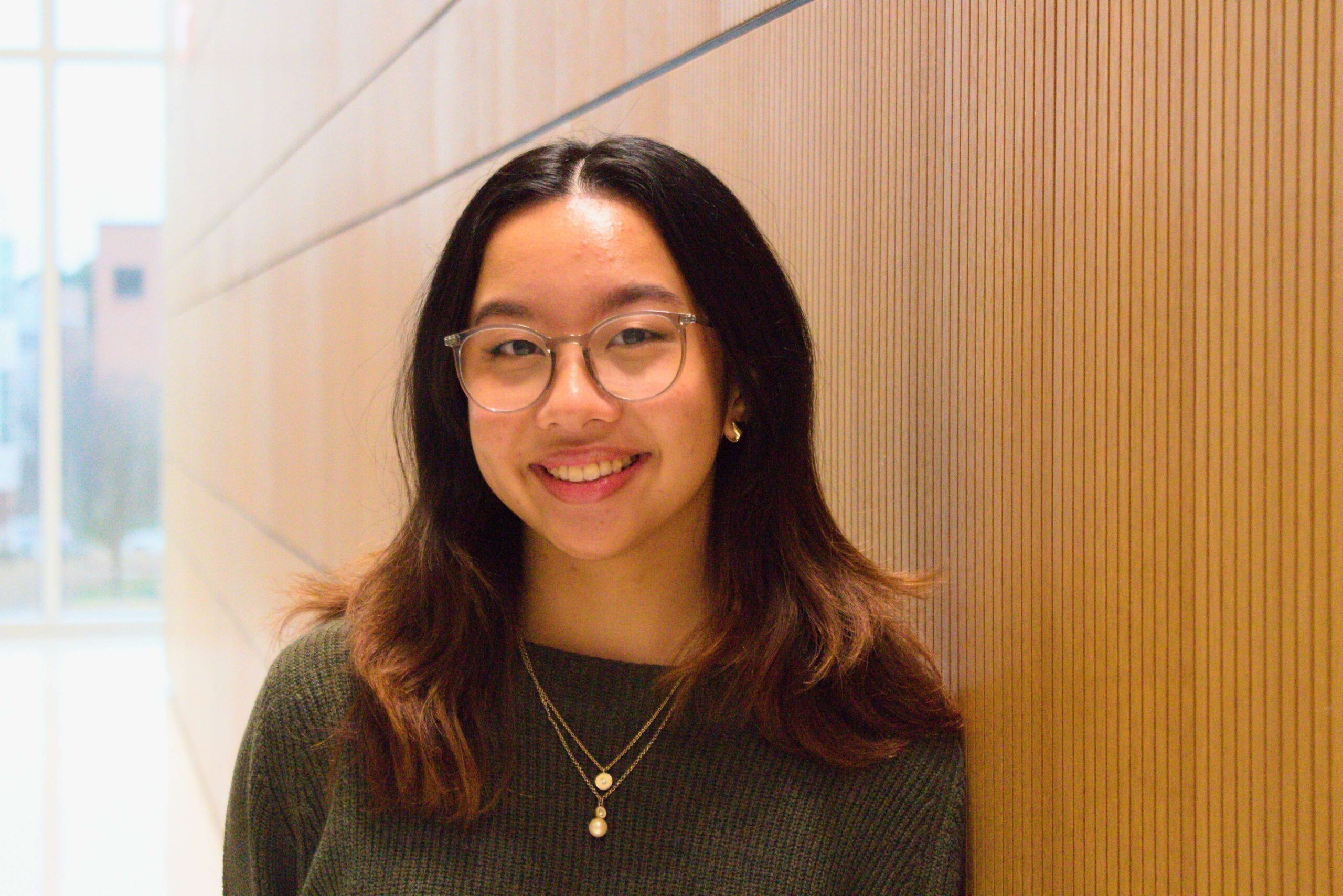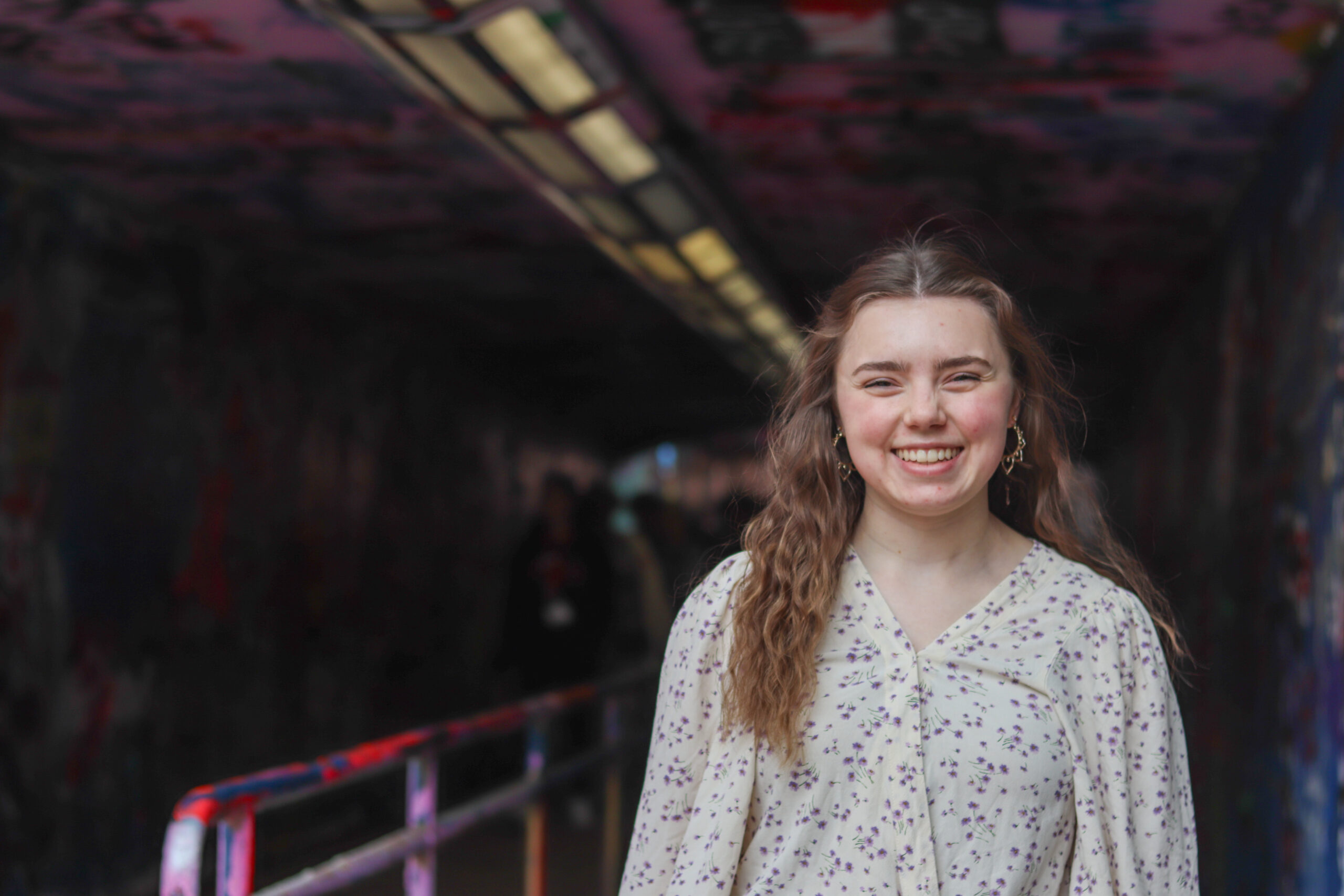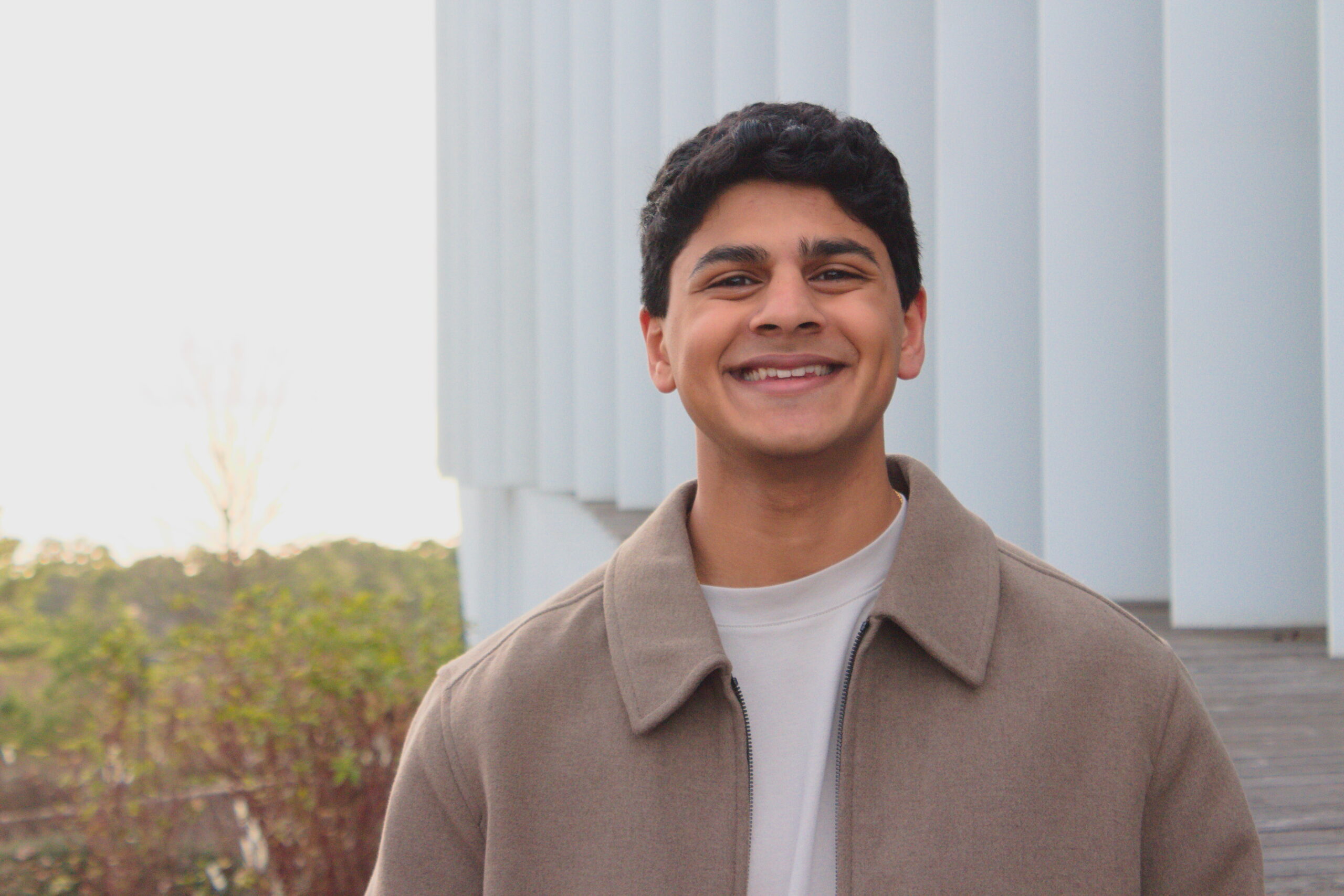Goodnight Alumni Spotlight: Asa Augustin

Goodnight Scholars Program: Describe your college self. What was your major, what were you involved in, how did you find yourself in the Goodnight Scholars Program?
Asa Augustin ’19: I majored in Mechanical Engineering and was part of the Goodnight Scholars Class of 2019. During my time in the program, I was an ambassador, mentor, and served on my senior class legacy committee. I also had the opportunity to travel with the program to Boston, Vancouver, and Trinidad & Tobago.
What inspired you to go the consulting route? How were you able to connect your major to the work that you do?
Even before I entered college and began coursework in Mechanical Engineering, I had always envisioned myself being a design engineer and building cool products – basically I wanted to be Tony Stark. Fast forward to the start of my senior year, and my experiences to that point led me to reconsider the type of career path I wanted to pursue.
When it came to my coursework, the classes I enjoyed the most had a coding component to them (i.e. Mechatronics, Database Applications) and I also found myself interested in more business leaning courses such as Engineering Entrepreneurship and Fundamentals of Product Design. Reflecting on what I was interested in academically, I considered that a more business or tech oriented career could be a better fit for me. While this realization was important, another big piece of the puzzle came from my internships with General Electric, where I was doing engineering analysis work on nuclear reactors.
Internships can be useful for figuring out what you want to do, but I think they’re even better for understanding what you don’t want to do. I gained a lot of valuable experience from my undergrad internships – it was my introduction to the corporate world and I met some really great mentors. At the same time, the things I disliked stuck with me more than the things I enjoyed, and from that I was able to identify some basic criteria for what I wanted for my career.
Especially as an intern on the engineering side of a company, it can be difficult to understand the value of the work you’re doing – you don’t really have the context of how the business operates and how your work plays a role in that. Understanding the “Why” of my work was really important to me at that time (and still is). On top of that, my work wasn’t very collaborative and I didn’t get to interact with coworkers as much as I would have liked. Lastly, I realized how much value there is in your work environment and your industry. As a young person of color, I didn’t feel like I fit in well in the workplace. In an office that wasn’t the most diverse and also skewed older, I found it difficult to relate to others and build meaningful relationships. Looking forward to where I might be in 20 years, I thought “Is this the kind of place I wanted to be at? Were these the types of roles I wanted to fill?”
With all those factors taken into consideration, I determined that engineering wasn’t the right fit for me and I sought to explore what other paths I could embark upon. As recruiting season kicked off during my senior year, networking with peers and recruiters at career fairs led me to discover consulting, which checked off my boxes and seemed like a great way to make my transition. Looking back, while my consulting experience wasn’t perfect, it did serve as the stepping stone I needed to make a jump in careers.
What inspired your transition from Deloitte to Lowes?
Most of my time at Deloitte was spent running the project management office (PMO) of enterprise resource planning (ERP) system implementations for healthcare systems. The PMO team is responsible for defining and maintaining project management standards across an organization or project. This enables a program to monitor their project status versus their plan, monitoring risks and blockers to keep things from getting off track. Transitioning from engineering, these positions were great for me because I was able to learn about management, agile methodologies, and get exposure to technology basics and functional areas I was unfamiliar with such as supply chain and change management.
In addition to these ERP implementations, I also got the opportunity to plan a hackathon with an NFL team. This involved scoping out the hackathon’s roadmap, developing a marketing strategy, and working with legal to get the project off the ground. This experience was really instrumental for me because it introduced me to the world of analytics. Although my role was largely functional, I found my mind starting to tick again in the same way that it did when I was problem solving as an engineer. While consultants do a lot of problem solving, doing so in a business context versus a technical context looks very different. Not that I wanted to be 100% technical (after all I did pivot from engineering for this reason), I was sure that I wanted at least some of my work to be analytical in nature. Because of where I was aligned within Deloitte’s organization, I didn’t have much of a path to do the type of work I desired. To develop my career in the right direction, I decided it was best to pursue opportunities elsewhere, ultimately leading me to Lowe’s.
Describe the nature of your work? What do you enjoy most about it and what do you find difficult or unenjoyable?
I work on Lowe’s Workforce Management Team. Our goal is to provide Lowe’s brick and mortar stores various tools and insights to enable them to optimally schedule associates. For most businesses, especially those in retail with an in-person presence, payroll is the biggest operating expense. By making sure we’re spending this money efficiently, the impact of payroll to the business’ bottom line is kept in check.
Based on sales projections for the year, we can forecast the staffing levels needed down to the day and hour for each store and its respective departments. This ensures that stores are staffed appropriately to meet demand from consumers, while also preventing overstaffing and wasted payroll dollars. There’s a delicate balance in keeping these two factors in check – you could spend the bare minimum on payroll and staff lightly, but you’d miss out on some sales. On the other hand you could staff a store heavily, but to the detriment of the store’s profitability.
Lowe’s takes a very data focused, analytical approach to tackling this challenge – providing stores with a suite of custom built technology solutions to support their scheduling decisions. I work on the business side to support development of these tools. In terms of what my day-to-day looks like, it largely consists of collaboration with our development team to build out technology features, supporting our field users’ inquiries about using our tools, and using SQL and Python for business reporting and analytics.
Considering my past roles and where I’ve envisioned the type of career I want, my position at Lowe’s has been a perfect fit! As an undergrad doing internships, I struggled to understand the value my work was adding to the business. During my time in consulting I gained breadth in functional and managerial roles, but I missed the problem solving of doing technical work. My current role is a good blend of both tech and business, allowing me to dip my toes into both types of work and grow those skills in parallel. A bit of a blanket statement, but getting to do interesting work and steer my career in the direction I desire has been my favorite aspect so far. Still being pretty new to this role, the most difficult part has been getting my knowledge and skills up to speed – both about Lowe’s business and the intricacies of workforce management, but also in upskilling my technical capabilities.
What are some non-work related goals you have for yourself over the next 5 years?
Outside of work, I honestly can’t say I have many specific goals. Especially after spending time in consulting, having a good work-life balance and enjoying my personal time to explore my hobbies and spend time with friends and family is super important to me. 5 years down the road, as long as I’m still taking the time I need for myself to live a fulfilled life and spend it with those most important to me, I’ll be more than happy.
Looking back, how has your Goodnight experience impacted who you are as a person in the present day?
The Goodnight Scholars Program has done a great job of fostering community, from the professional staff to current scholars and alumni. This community was and still is a great support system that really helped me break out of my shell. Whether it was studying with others in the Goodnight lounge, or going on international trips with fellow scholars, I have lots of great memories from the program and built lasting relationships. Some of my best friends to this day are people that I met from the Goodnight community.
- Categories:


